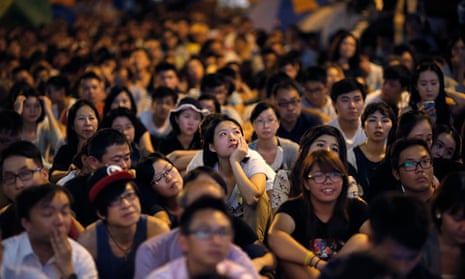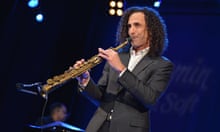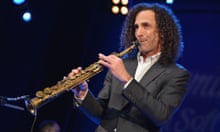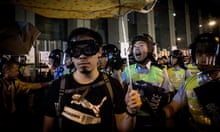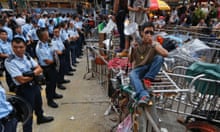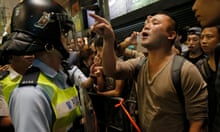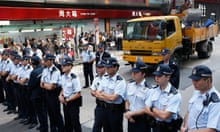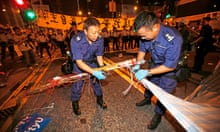Hong Kong’s embattled leader has said he is open to creating a more democratic selection committee before elections in 2017, extending a potential olive branch to democracy protesters as crunch talks to end the demonstrations got under way.
Parts of the Asian financial hub have been paralysed for weeks by rallies calling for the chief executive, Leung Chun-ying, to resign and for China to revoke a ruling in August that candidates for the city’s next election be vetted by a pro-Beijing committee – something protesters have called a “fake democracy”.
In an interview on Tuesday, Leung said that while Beijing would not back down on vetting his successor, the committee tasked with selecting those candidates could become more democratic.
“There is room for discussion there; there’s room to make the nominating committee more democratic and this is one of the things we’d very much like to talk to not just the students but the community at large about,” he said.
The offer is still a long way from meeting the core demands of protesters who say anything other than public nomination of candidates is unacceptable.
But Leung’s comments are the first indication of a potential negotiating point as talks began between senior government officials and student leaders at a nearby medical college.
A failure by both sides to reach a compromise could mean weeks of further chaos in a city once renowned for stability and a resumption of violent confrontations between police and protesters after two days of calm.
Leung is not attending the discussions after students refused to talk to him, but he said he would be watching them on a live link.
Leung came to power in 2012 after winning 689 votes of a 1,200-strong committee made up of representatives from key Hong Kong sectors such as agriculture, religion, law, and the city’s powerful business community. Members of that committee were themselves voted in by a panel of around 250,000 people.
Analysts have previously suggested that the 1,200-member committee could be expanded to create a more representative body without upsetting Beijing and Leung.
Leung insisted his administration remains in charge of dealing with the protests, after repeated speculation that Beijing was really calling the shots.
“We don’t have any instructions from Beijing, or suggestions as to when or who we clear the streets,” he said, adding he did not feel the need to speak to his political masters on the mainland on a daily basis.
He warned that police could move the barricades at any time – even with talks going on – because patience among many locals was running out and some were “taking the law into their own hands”.
“While the police have exercised tolerance, patience and restraint we have concerns that people may not,” he said.
Over the past three weeks, protester camps have occasionally been attacked by government loyalist thugs while some taxi and haulage associations have threatened to take their own action against protesters’ barricades if they continue to block key intersections.
Previous attempts by police to remove barricades have sparked violent scuffles.
Leung also defended himself from allegations that he did not care about his city’s poor. In comments that drew widespread condemnation on Monday, Leung suggested that granting full universal suffrage would result in the poor dominating the electoral process.
Many younger protesters say inequality and the political elite’s cosy relationship with the city’s powerful tycoons have stifled opportunities and made it impossible to get on to the housing ladder.
But Leung defended his administration’s record, saying he had pushed to provide more housing and had introduced policies to tackle poverty, adding: “My government has been described as a populist government.”
